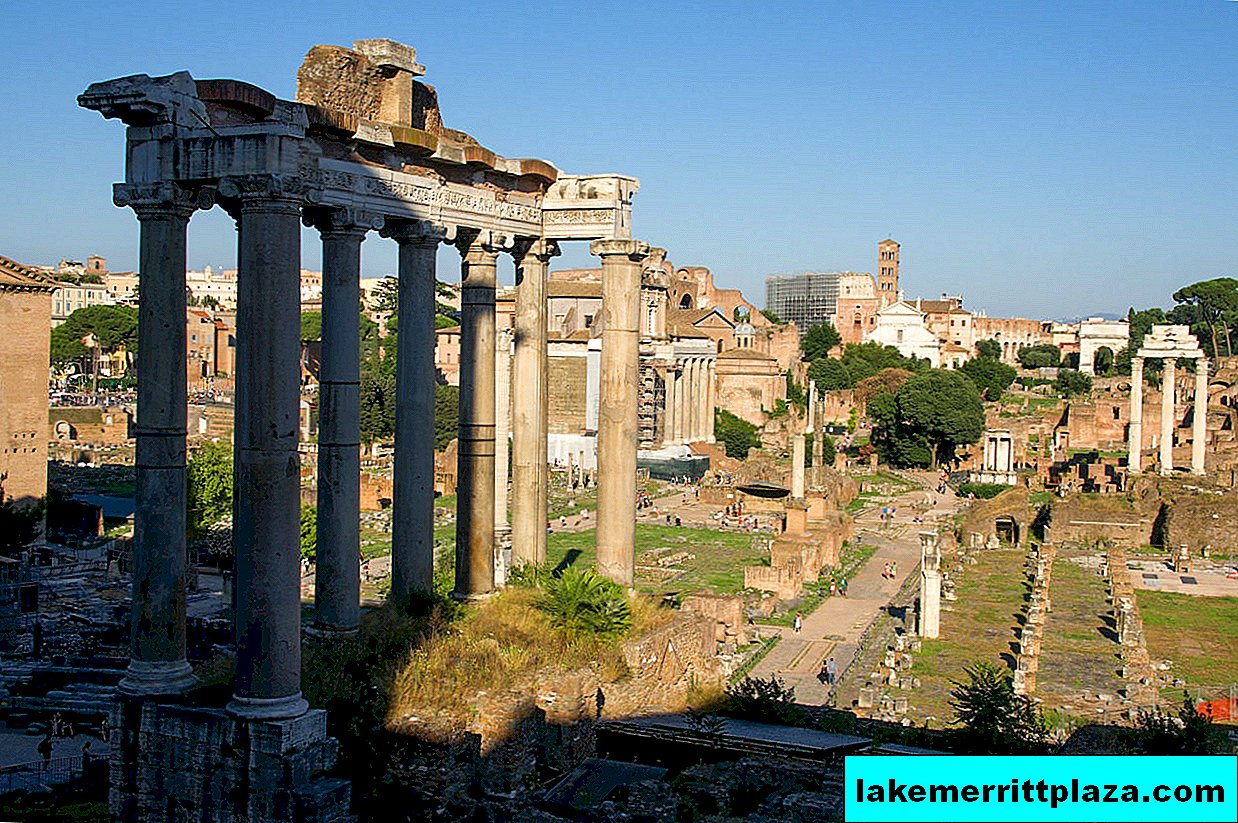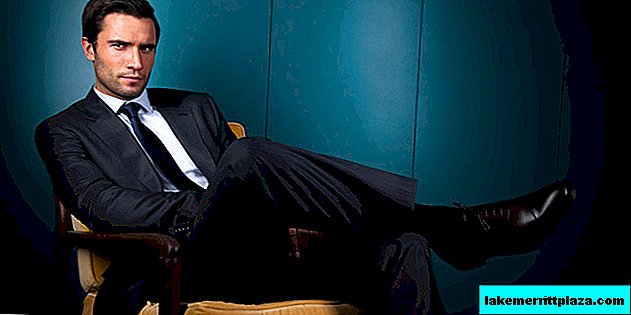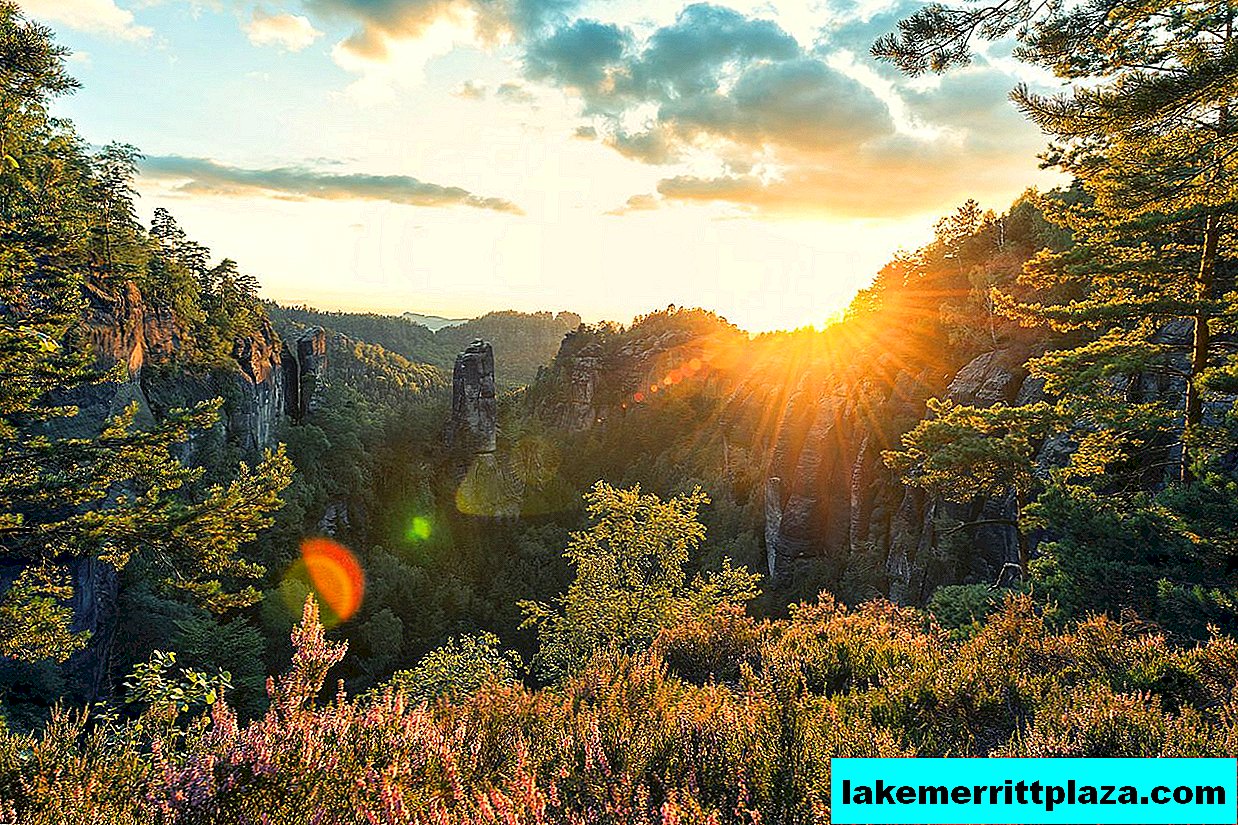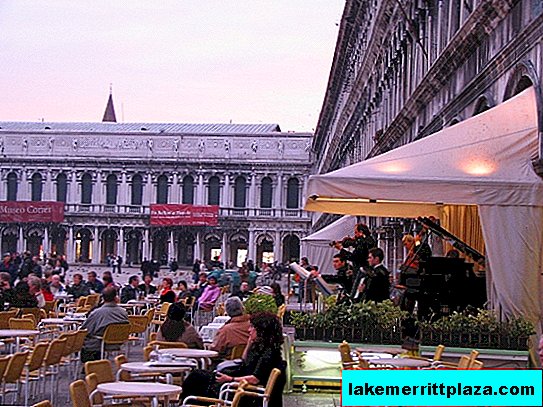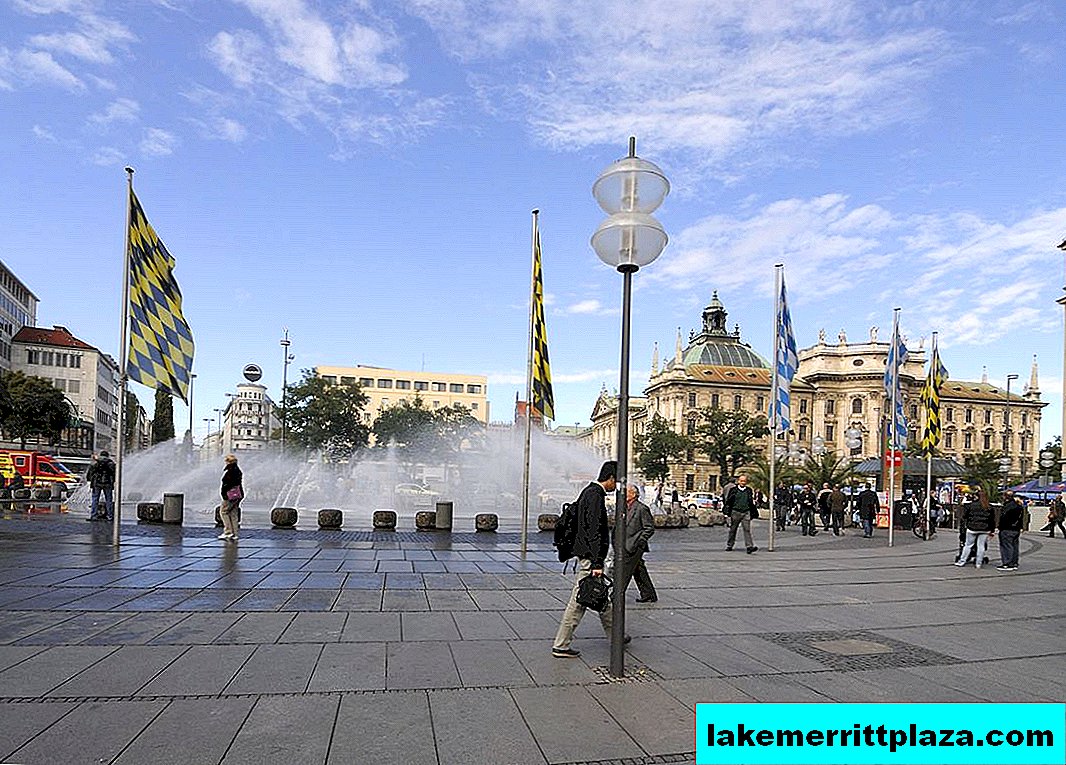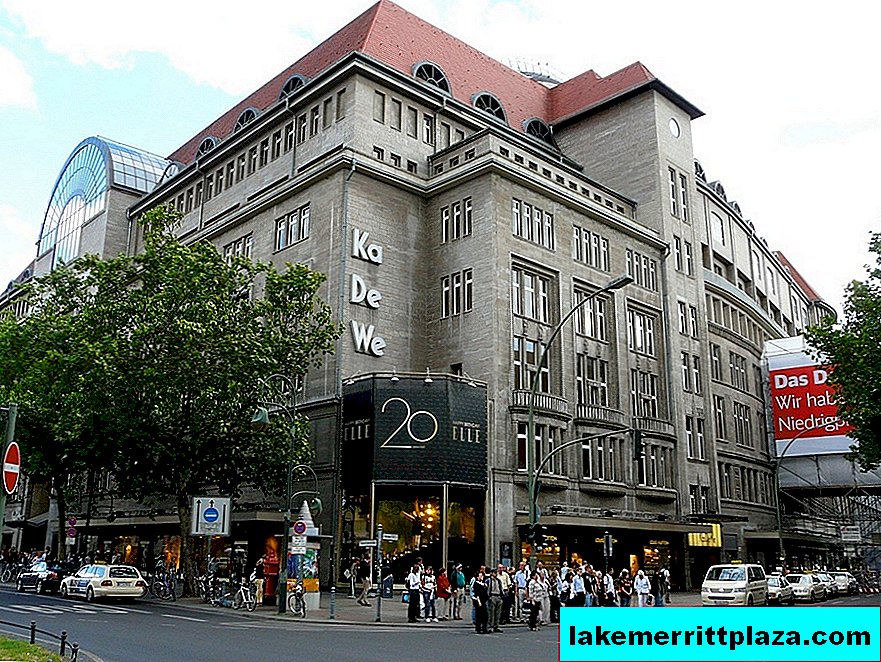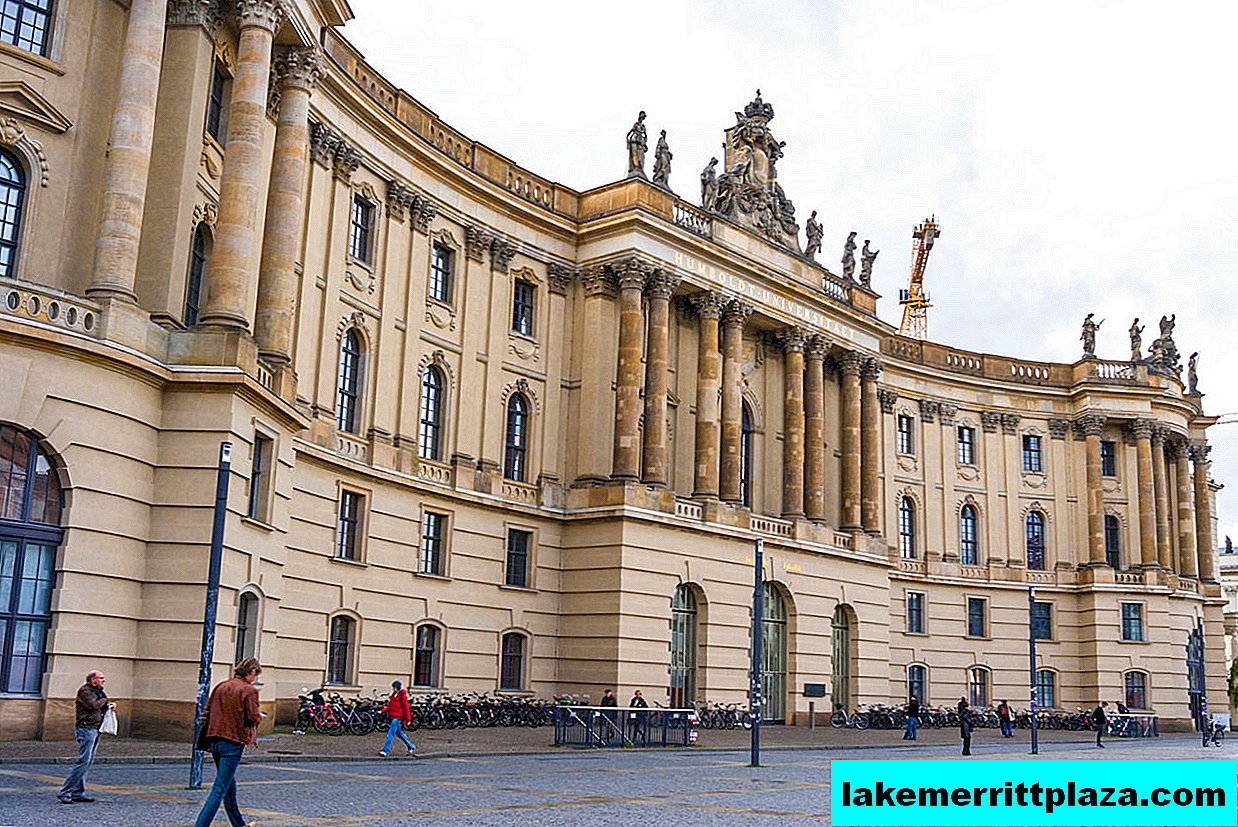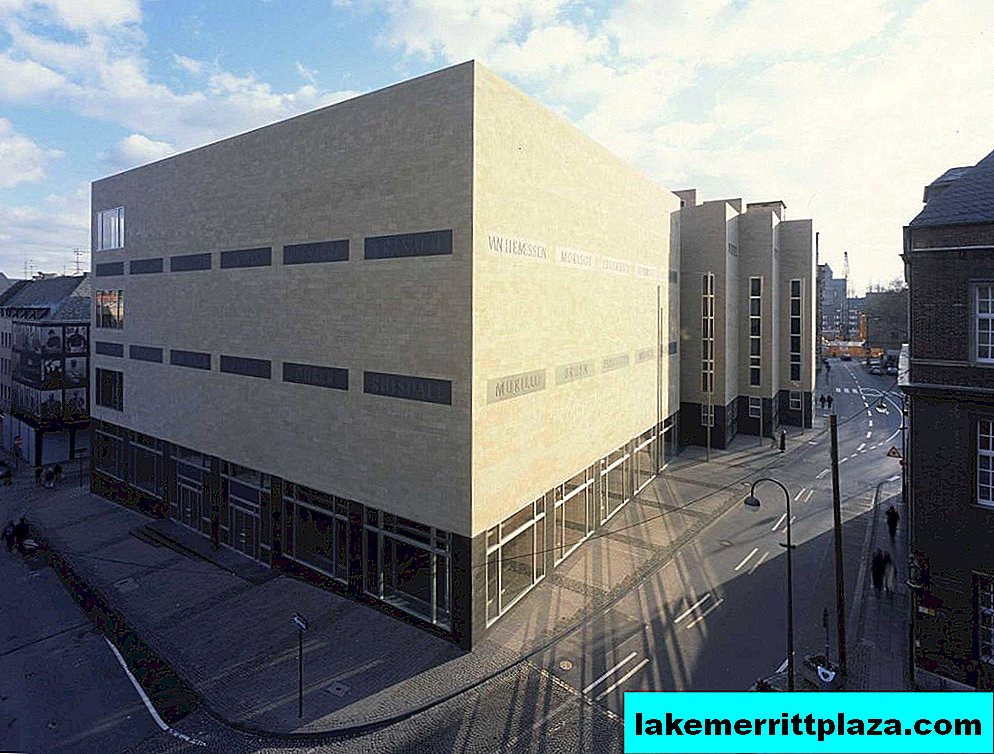The independent city-state of the Vatican was founded according to the Lateran agreement between the Italian state and the Roman Catholic Church in 1929. It is located on the right bank of the Tiber in the western part of Rome.
The Vatican is the smallest state in the world and it contains all the highest governing bodies of the Roman Catholic Church, including the residence of the pope. Its area is only 0.44 square kilometers. The population is multinational and consists of 1000 people.
The name of the city-state comes from the name of the hill on which it is located - Vaticanus. Along the perimeter, the territory of the Vatican is surrounded by medieval walls.

On the territory there are palace complexes, Vatican gardens, art galleries, museums and various administrative buildings. Formally, the border with Italy passes through St. Peter's Square. However, on the terrain it is not indicated in any way. According to the principle of extraterritoriality, some objects located on the Italian side belong to the Vatican. These include the Basilica of San Giovanni in Laterano, the radio station Santa Maria di Gallery, the summer papal residence in Castel Gandolfo. In addition, a number of educational institutions are also subordinate to the Vatican. Among them, the University of Pope Urban, founded in 1927, the University of St. Thomas Aquinas, founded in 1909, and several others.
Sights
St. Peter's Square and Cathedral
- Recommended excursion: the whole Vatican in 6 hours
Thousands of tourists and pilgrims come to the Vatican every year. They all want to receive a papal blessing and see with their own eyes the unique monuments of architecture and history. The twenty-five-meter Egyptian obelisk rises in the center of the largest square in Rome - St. Peter's Square.

The size of the area is 340 by 240 meters. A unique Renaissance monument in the square is St. Peter's Basilica of the same name, designed by Donato Bramante. The colonnade around an area of 284 columns was created by Giovanni Lorenzo Bernini. The facade of the cathedral was designed by Carlo Madern. The cathedral of St. Peter is crowned by the creation of Michelangelo Buanarroti. St. Petra was recognized as the greatest creation of world architecture.
We recommend: Climb to the dome of St. Peter's Basilica at sunrise

The Vatican's palaces form the largest museum complex in the world. In their many galleries, exhibition halls, courtyards are priceless works of art. This wealth has been collected for many centuries by every Roman pontiff. The Vatican Library houses a rich collection of books and ancient manuscripts. In the Sistine Hall is a handwritten Bible dating from the 4th century.
The Sistine Chapel
The Sistine Chapel was built by the architect J. de Dolci in the late 15th century on the orders of Pope Sixtus IV. From the inside, the chapel's dome is painted with the famous frescoes of Michelangelo, which are a striking landmark of the Vatican.
The Sistine Chapel is constantly open to visitors, except for the time when the process of electing a new pope is going on. According to tradition, if the meeting of cardinals comes to a consensus, then the results of the vote are reported by a column of smoke from the chapel pipe from the burned ballots. Moreover, if the decision is not made, the color of the smoke is black, and if it is accepted, and dad is elected, then white.
Gardens

The Vatican Gardens are some of the most protected places in the world. These are the most beautiful gardens in Europe and a place where you can relax, of course, only for the elite, in silence and greenery. The gardens are constantly looked after by 20 gardeners. There are many fountains, but the most impressive is the Galleon Fountain, built in the XVII century. This is a small copy of the Italian galleon, which shoots water from 16 cannons. Pope Urban VII glorified this work of art with a very wise phrase, which is translated from Latin as follows: "A war machine owned by the popes does not shoot with fire, but with water that extinguishes the flames of war."
The gardens are constantly looked after by 20 gardeners. There are many fountains, but the most impressive is the Galleon Fountain, built in the XVII century. This is a small copy of the Italian galleon, which shoots water from 16 cannons. Pope Urban VII glorified this work of art with a very wise phrase, which is translated from Latin as follows: "A war machine owned by the popes does not shoot with fire, but with water that extinguishes the flames of war."
Citizenship
Obtaining Vatican citizenship is far from easy. As of 2013, among 1,100 residents, only half had Vatican citizenship, including 61 cardinals and all members Swiss Guard. At the same time, every cardinal who comes here receives a temporary residence permit. Citizenship is obtained only by the highest ranks of the Catholic Church from the environment of the pope.
Interestingly, all Vatican passports are diplomatic - they treat the citizens of the Vatican in all countries as church diplomats.
The remaining residents of the Vatican, although they live on its territory, still have slightly limited access to the Vatican shops and trading houses. It is worth noting that all citizens of the Vatican have dual citizenship - also of the country where they come from. The remaining 3,000 Vatican employees are residents of Rome.

Vatican History Museum
It is more a museum of the military history of the Vatican city-state than a general history. In the weapons department you can get acquainted with various collections of weapons, from ancient sabers from Venice to muskets made by the Remington factory.
Pharmacy
Located right at the gates of St. Anne, the Vatican pharmacy is the oldest in the world. It was founded in 1277. He is engaged in the sale of rare medicines, which are sometimes difficult to find in Italian pharmacies. Some medicines here have other packaging. Implements about 6000 recipes per month.
Fire station
There have been no fires in the palace for more than a century, but just in case in the Vatican, 20 firefighters, with 3 fire engines at their disposal, have 24 hours duty.
Vatican Railway
This is most likely the shortest railway line in the world. It does not have a clear timetable, and its length is only 900 meters. But nevertheless, it is connected to the Italian railways, and in a special carriage for dad there is a kitchen, a balcony and a bedroom.
Library
There are more than one million books and as many manuscripts in the library. The Pope, of course, has the right to take any book he likes for an unlimited period.
Supermarket
There is only one supermarket in the Vatican, and only people with the DIRESCO special pass issued by the city governor have the right to shop in it. It is not surprising that it is very popular among relatives of the Vatican residents who can legally shop there, since the prices there are much lower than in Roman shops. Known as Annona, the supermarket is located next to Via San Giovanni di Dio, right behind the pharmacy. Opening hours: on weekdays from 7.00 to 18.00, on Saturday to noon.
Vatican trading house
Most recently, it was transferred to the building of the former railway station. Here you can find a wide range of goods from the most modern TVs and expensive watches to electronic cigarettes, which are 20-30% cheaper than outside the Vatican.
Post office
The Postal Department was founded in the Vatican in the 14th century. This is a commercial and highly profitable organization, mainly due to the sale of commemorative stamps. Mail delivers about 8 million letters and postcards annually and has a reputation for functioning much better than Italian.
Gas station
There are several gas stations on the Vatican, but the most popular is the one located in the south of St. Peter's Square. Non-taxable fuel is 30% cheaper here than in Italy. Only persons with special permissions have the right to refuel here.
Interesting Facts
- Square: 44 hectares
- The length of the state border is 3 kilometers
- You can walk around the Vatican in about an hour
- Population: 1100 permanent residents, of which 95% are men
- Official language: Latin
- ATMs: Vatican ATMs are the only ones in the world where the main language used on the screen is Latin
- Time zone: Central European
- Phone Code: 0-03906
- There are no traffic lights in the Vatican
- Vatican citizens do not pay Italian taxes, even if they live in Rome
- No aircraft can violate the airspace of the Vatican
- The Vatican has its own domain zone on the Internet .va. Official website: www.vatican.va
Pope
 The Pope is the head of the church and heir to St. Peter - the most important symbol of Catholicism for more than a billion believers around the world. He is also the “general director” of the church, responsible for order within the organization, which has existed for 2000 years. And finally, he rules the Vatican - a city-state that is the property of the church. This is a huge responsibility.
The Pope is the head of the church and heir to St. Peter - the most important symbol of Catholicism for more than a billion believers around the world. He is also the “general director” of the church, responsible for order within the organization, which has existed for 2000 years. And finally, he rules the Vatican - a city-state that is the property of the church. This is a huge responsibility.
Nationality Popes
The list of 264 popes, heirs of St. Peter (to be exact 262, since Benedict IX was elected three times during the troubled church for the Middle Ages), contains: 205 Italians (106 Romans), 19 French, 14 Greeks, 8 Syrians, 6 Germans , 3 Africans, 2 Spaniards and one Austrian, Pole, Palestinian, Englishman and Dutchman.
Answers to the most popular questions about the Pope
Who was the pope the longest?
For the longest time, for 32 years, Pius IX ran this organization. The shortest period, 4 days, in this position was Pope Stephen II, died of an apoplexy even before the coronation.
What does dad eat?
5 sisters of legalists are engaged in cooking food for dad, who, at his request, make up a special menu. For example, Jan Paul II was very fond of simple Polish dishes. Regularly ate dumplings and beetles for lunch, and grandmother pie for dessert. Most vegetables and dairy products come from the summer residence of the pope - Castel Gandolfo Castle. While most biscups and cardinals can be seen in the best Roman restaurants, it is difficult for the pope to imagine such a luxury.
Addresses of the most popular Roman restaurants among Vatican citizens:
- II Mozzicone (Borgio Rio 180; tel. 06 686 1500). Known for its excellent traditional Roman cuisine such as, for example, fettuccine al ragu.
- Velando (Borgo V. Horio 26; tel. 06 6880 9955). Cardinals' favorite restaurant serving modern Italian cuisine, such as risotto with strawberries or vegetable strudel with frog legs.
- Taverna Angelica (Piazza Amerigo Capponi 6; tel. 06 687 4514). This restaurant specializes in fish, and you could also find a large selection of cheeses here.
Who sews clothes for dad?
Before the new dad will be elected on the conclave, they prepare three white outfits in different sizes: small, medium and large. The wardrobe for the new dad is sewn and fitted as quickly as possible. For many years, the official sewing workshop was Ditta A. Gammatelli, located in the very center of Rome. The local craftsmen manually sewed all the elements of the papal wardrobe. The new Pope Benedict XVI changed the workshop, and now his clothes have been sewn by Raniero Mancinelli, who has been engaged in sewing clothes for 40 years.
What is dad’s day plan?
- The day starts at 5.30, dad gets dressed with the help of a personal valet.
- After praying in a private chapel, the pope holds a service for the closest associates and specially invited guests.
- Breakfast starts at about 8 o’clock. Like most Italians and residents of Rome, the pope loves coffee in Italian, and the menu is optional. For example, Jan Paul II loved sausages for breakfast, and Benedict XIII often ordered an egg dish, which was named after him in Benedictine style.

- The plan of the day also contains important meetings with many biscups who arrive at the Apostolic Palace from around the world for meetings that are called ad limina every 5 years. During these meetings, they visit the Vatican and meet with dad at an audience. Pope also holds regular meetings with the Roman clergy.
- Lunch takes place around noon, usually he has the character of a worker, combined with meetings with the Roman administration. Unsurprisingly, Italian pasta is often served for lunch.
- The time from 2 p.m. to 4 p.m. is usually intended for a siesta, traditional for southern countries in the afternoon rest. Dad, of course, can work at this time, as Jan Paul II did, but you really shouldn’t count on the support of colleagues at this time of the day.
- Dinner starts at about 6 p.m. Pope can dine alone, as Pope Pius XII did, or in the company of invited guests, like John Paul I and II.
- Around 11 p.m. Papa goes to bed after evening prayer..
Dad mobile
Thanks to this, one of the most famous and beloved by many people cars, hundreds of thousands of believers have the opportunity to at least a few minutes to look at dad live.  The first car of this type was made by Land Rover after the assassination attempt in 1982 on Pope John Paul II. After some time, Mercedes Benz had already designed a car with bulletproof glass protecting the pope from all sides so that the holy father could bless the crowds of Catholics. Today, around 20 papa-mobiles are waiting for the head of the Catholic Church to arrive in different countries of the world, of which 6 are constantly in the Vatican's garages.
The first car of this type was made by Land Rover after the assassination attempt in 1982 on Pope John Paul II. After some time, Mercedes Benz had already designed a car with bulletproof glass protecting the pope from all sides so that the holy father could bless the crowds of Catholics. Today, around 20 papa-mobiles are waiting for the head of the Catholic Church to arrive in different countries of the world, of which 6 are constantly in the Vatican's garages.
What is the fuel consumption of dad mobile?
Fuel consumption, when it comes to dad mobile, is not the most important characteristic - safety is much more important. Of course, the flow rate depends on the model. Although, if you calculate that the average weight of such a car is about 4 tons, we can assume that the consumption will be comparable to the Hummer H2 (which weighs about the same), or more than 20 liters per 100 kilometers.
What is the registration number for dad mobile?
Each mobile dad has the same registration number: SCV 1, which means Stato delli Citta del Vaticano (Vatican City State). The license plate has a white background with red letters; all other license plates have black letters.

Facts and Figures about Papamobiles
- In addition to Land Rover and Mercedescars for the pope are also produced by Fiat, Renault, Peugeot, General Motors, Toyota and Volkswagen.
- Astronomical prices for dad mobiles are never revealed, since all they are gifts from manufacturers.
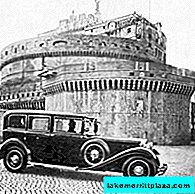 Before the popes began to drive in armored vehicles, they were carried on ordinary production models, several of which are on display at the Vatican Auto Museum. Almost immediately with the start of the automotive industry, the Vatican began to use several beautiful models. Pope Pius XI was a fan of the Isotta Fraschini limo, and his heir Pius XII had several Cadillacs designed specifically for him, one of which even housed the papal throne. Pius XII was also presented with models Bianchi, Fiat 525 and Graham-Paige. It is not surprising that, having such cars, Dad often shouted at his chauffeur: “Velocita, Velocita!” (Faster, faster).
Before the popes began to drive in armored vehicles, they were carried on ordinary production models, several of which are on display at the Vatican Auto Museum. Almost immediately with the start of the automotive industry, the Vatican began to use several beautiful models. Pope Pius XI was a fan of the Isotta Fraschini limo, and his heir Pius XII had several Cadillacs designed specifically for him, one of which even housed the papal throne. Pius XII was also presented with models Bianchi, Fiat 525 and Graham-Paige. It is not surprising that, having such cars, Dad often shouted at his chauffeur: “Velocita, Velocita!” (Faster, faster).- Ferarri, on the occasion of the 26th anniversary of being on the throne, gave John Paul II a red model of the fastest car in the world of formula 1 - F2004, made on a scale of 1 to 5.
Swiss Guard

The Swiss Guard was founded in 1506 by Pope Julius II (Giuliano della Rovere), who really liked the Swiss army. For his guard, he wrote out 150 Swiss soldiers. Julius II, nicknamed the Fighter among his entourage, even sent a guard to battle with the French occupying Italy before its unification.
 The Guard was almost completely destroyed during the defeat of Rome by German and Spanish mercenaries sent by King Charles V in 1527. During the assault on the Vatican, during its defense on the steps of St. Peter's Basilica, 147 guardsmen died, which amounted to 3/4 of the recently enlarged squad, including their leader and his wife, who, having seen the death of her husband, herself took his weapon and fought until she died at the entrance to the basilica. The surviving guardsmen helped Pope Clement VII and the thirteen cardinals make a safe escape to the castle of St. Angel.
The Guard was almost completely destroyed during the defeat of Rome by German and Spanish mercenaries sent by King Charles V in 1527. During the assault on the Vatican, during its defense on the steps of St. Peter's Basilica, 147 guardsmen died, which amounted to 3/4 of the recently enlarged squad, including their leader and his wife, who, having seen the death of her husband, herself took his weapon and fought until she died at the entrance to the basilica. The surviving guardsmen helped Pope Clement VII and the thirteen cardinals make a safe escape to the castle of St. Angel.
Stunning brown costumes were invented by one Vatican seamstress commissioned by Benedict XV in 1914. Most likely, one of the images of Raffaello Santi, on which such elements are present, inspired her to develop such original costumes.On the anniversary of the Vatican’s heroic defense on May 6, 1527, solemn ceremonies of the entry of new members into the Guard take place, which take the oath of allegiance to the pope in front of the whole company.

The candidate for the guards must be from 18 to 25 years old, he should be about 180 centimeters tall. Once enlisted, recruits learn the battle of swords and halabard, just like their predecessors from time immemorial. Naturally, they are also trained in using the most advanced weapons, as well as the most advanced anti-terrorist techniques. While patrolling the Vatican, the Swiss Guard does not carry firearms. This ban was introduced by Pope Paul VI in 1970.
To protect the capital of all the apostles, only halabards are used. In addition to the honorary profession and a very prestigious entry in the work book, the guards receive a very decent salary, which is about 4,000 euros.
- Learn: how to choose a hotel near the Vatican
How to get there
Webcam: online broadcast from the Vatican
You can see the list of scheduled broadcasts on the Vatican's official youtube channel.


 Before the popes began to drive in armored vehicles, they were carried on ordinary production models, several of which are on display at the Vatican Auto Museum. Almost immediately with the start of the automotive industry, the Vatican began to use several beautiful models. Pope Pius XI was a fan of the Isotta Fraschini limo, and his heir Pius XII had several Cadillacs designed specifically for him, one of which even housed the papal throne. Pius XII was also presented with models Bianchi, Fiat 525 and Graham-Paige. It is not surprising that, having such cars, Dad often shouted at his chauffeur: “Velocita, Velocita!” (Faster, faster).
Before the popes began to drive in armored vehicles, they were carried on ordinary production models, several of which are on display at the Vatican Auto Museum. Almost immediately with the start of the automotive industry, the Vatican began to use several beautiful models. Pope Pius XI was a fan of the Isotta Fraschini limo, and his heir Pius XII had several Cadillacs designed specifically for him, one of which even housed the papal throne. Pius XII was also presented with models Bianchi, Fiat 525 and Graham-Paige. It is not surprising that, having such cars, Dad often shouted at his chauffeur: “Velocita, Velocita!” (Faster, faster).